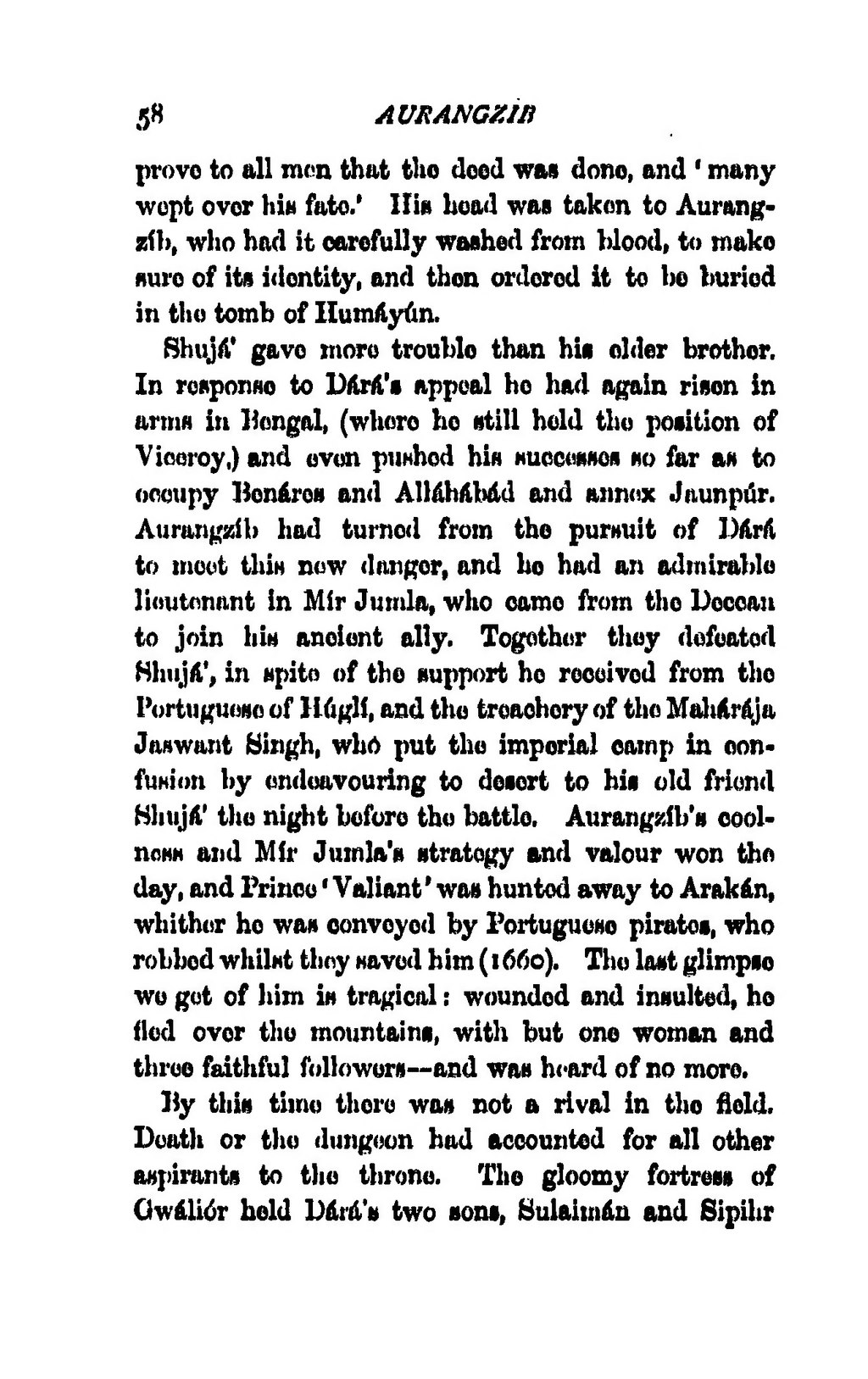prove to all men that the deed was done, and 'many wept over his fate.' His head was taken to Aurangzíb, who had it carefully washed from blood, to make sure of its identity, and then ordered it to be buried in the tomb of Humáyún.
Shujá' gave more trouble than his older brother. In response to Dárá's appeal he had again risen in arms in Bengal, (where he still held the position of Viceroy,) and even pushed his successes so far as to occupy Benáres and Alláhábád and annex Jaunpúr. Aurangzíb had turned from the pursuit of Dárá to meet this new danger, and he had an admirable lieutenant in Mír Jumla, who came from the Deccan to join his ancient ally. Together they defeated Shujá', in spite of the support he received from the Portuguese of Húglí, and the treachery of the Mahárája Jaswant Singh, who put the imperial camp in confusion by endeavouring to desert to his old friend Shujá' the night before the battle. Aurangzíb's coolness and Mír Jumla's strategy and valour won the day, and Prince 'Valiant' was hunted away to Arakán, whither he was conveyed by Portuguese pirates, who robbed whilst they saved him (1660). The last glimpse we got of him is tragical: wounded and insulted, he fled over the mountains, with but one woman and three faithful followers — and was heard of no more.
By this time there was not a rival in the field. Death or the dungeon had accounted for all other aspirants to the throne. The gloomy fortress of Gwáliór held Dárá's two sons, Sulaimán and Sipihr
